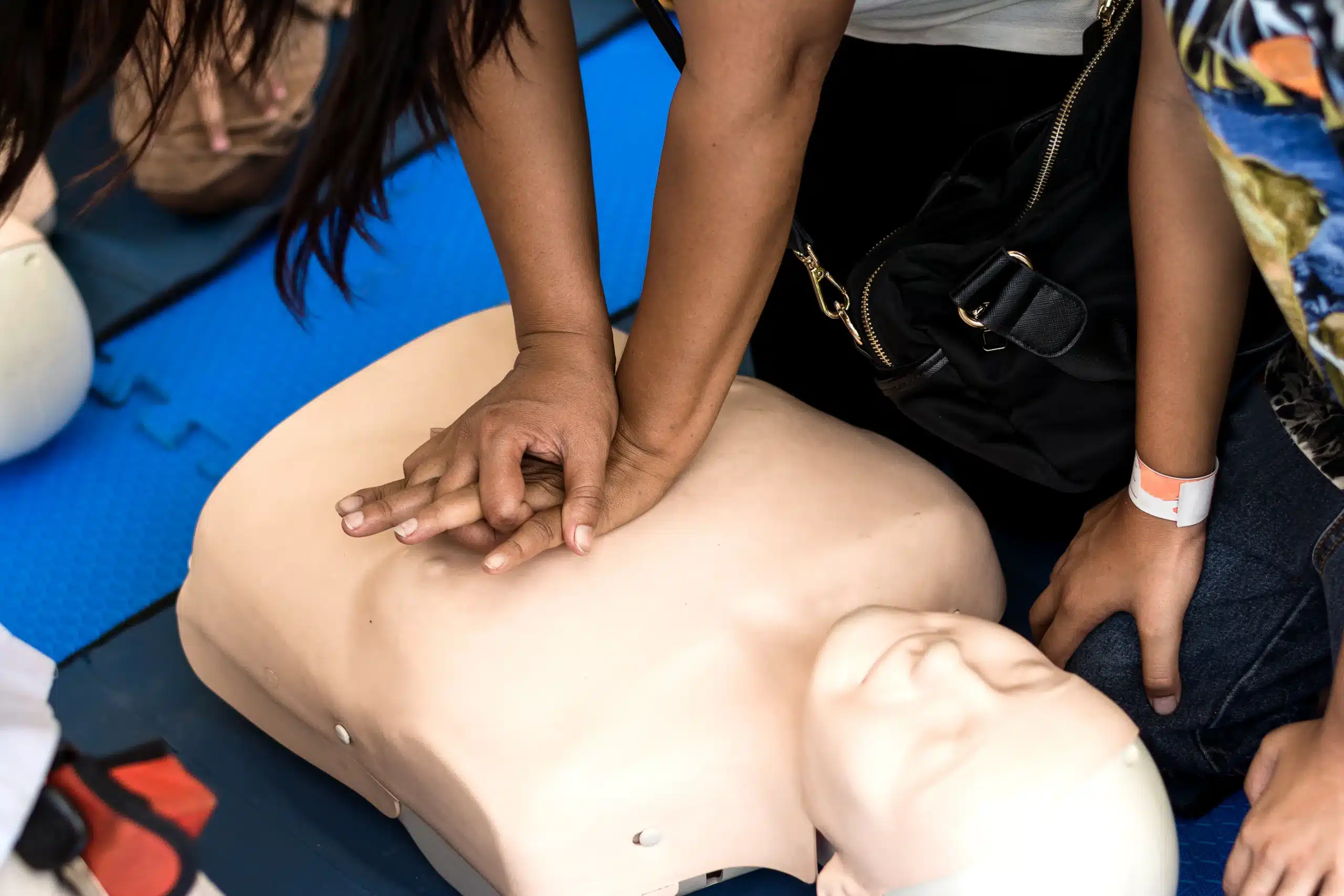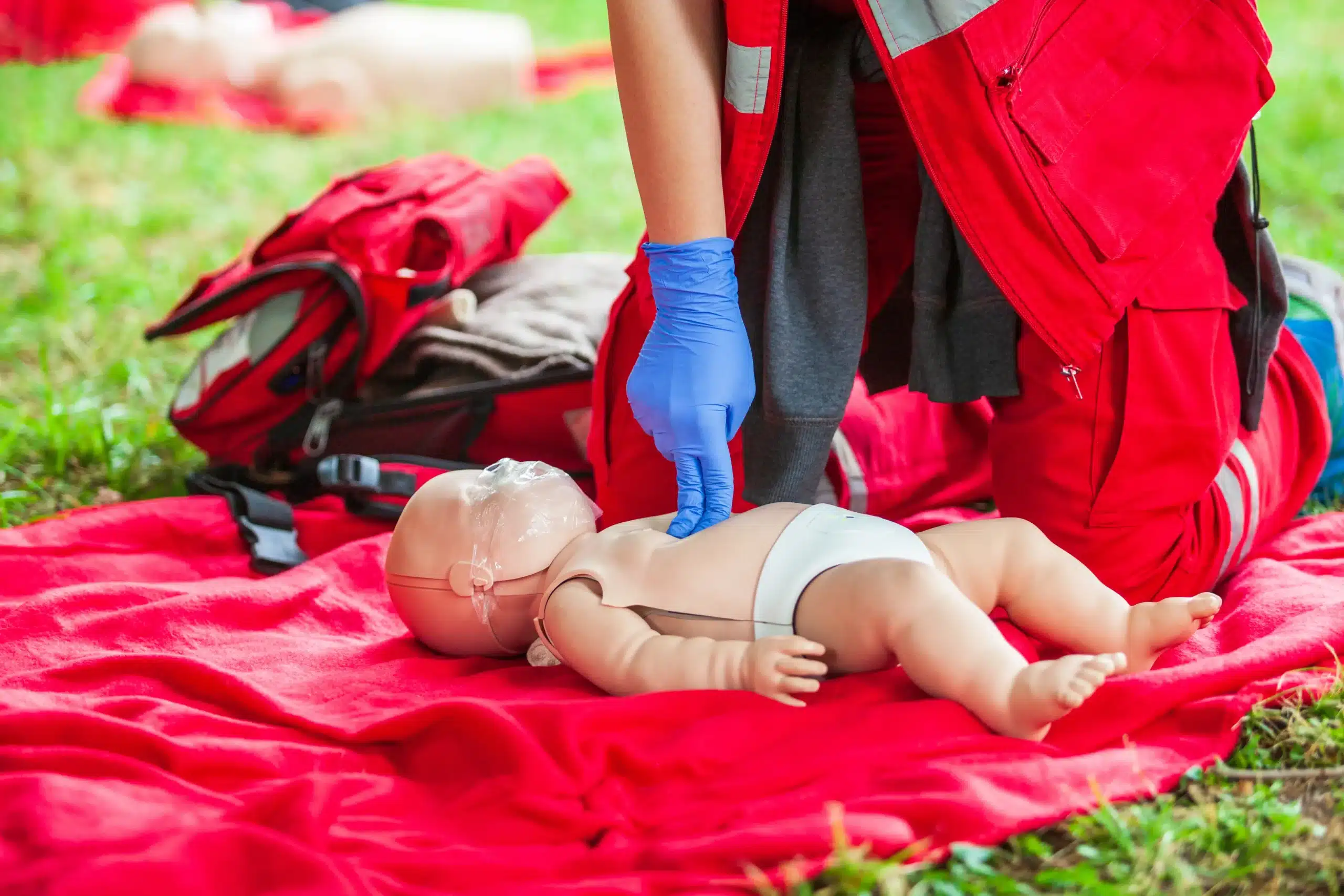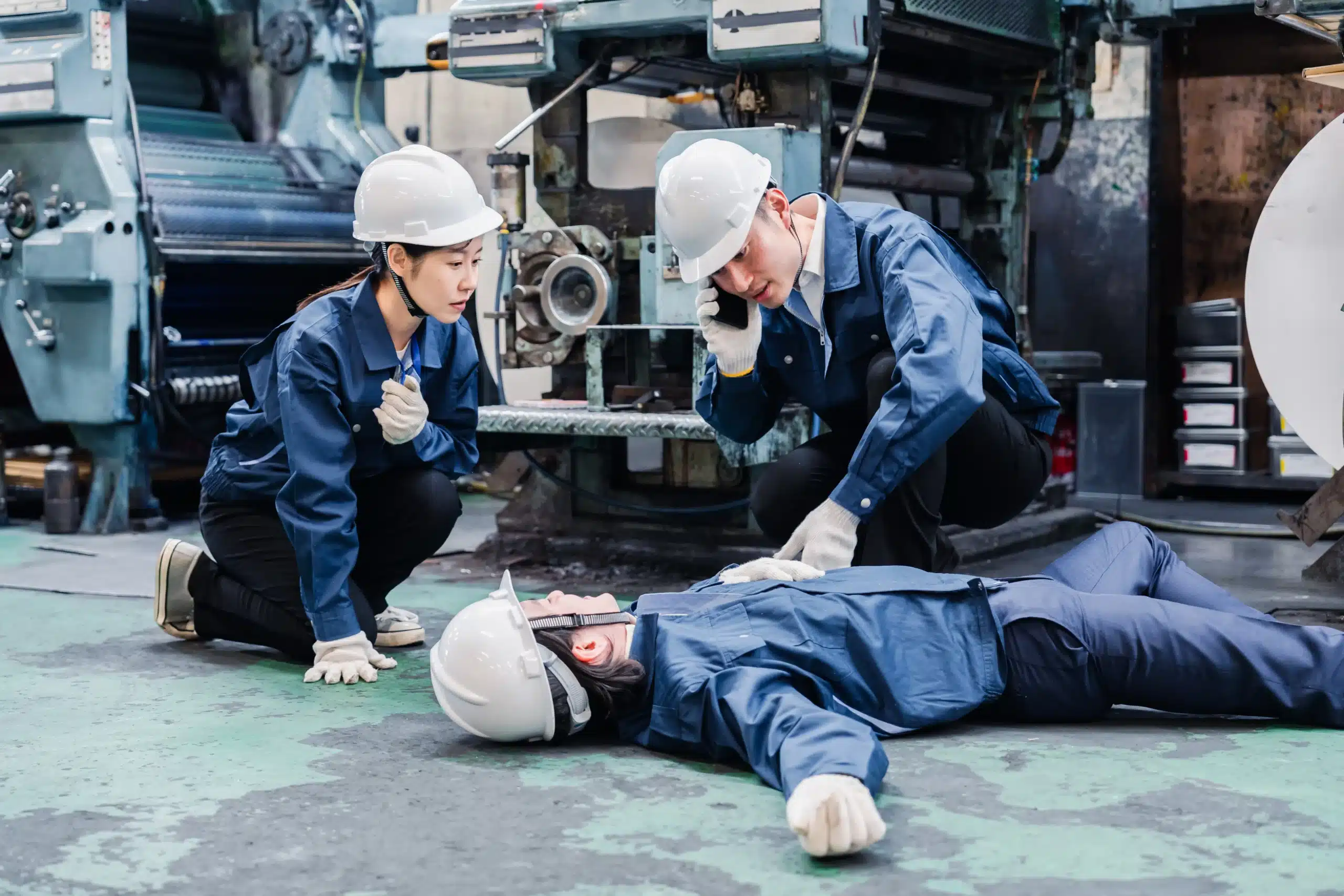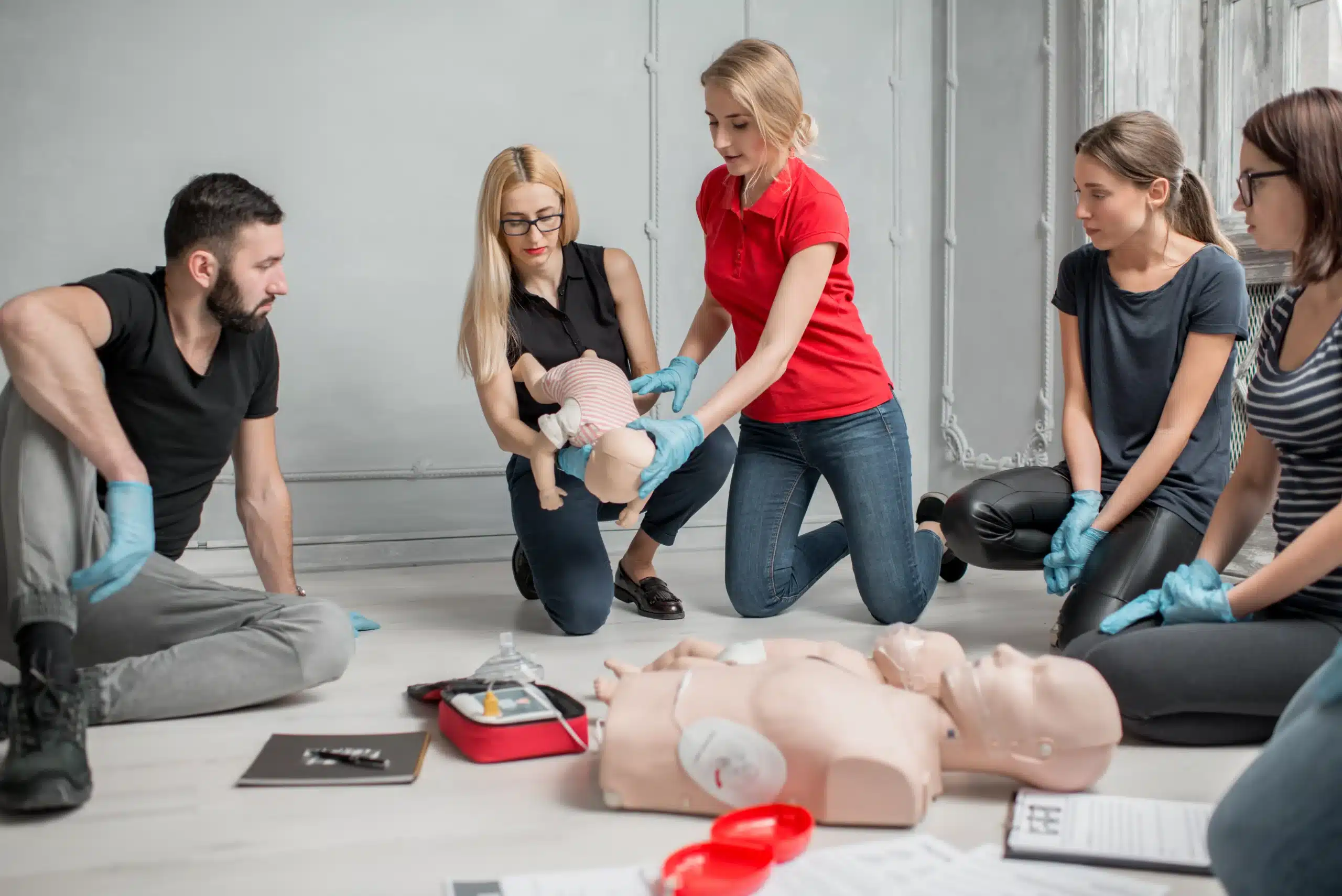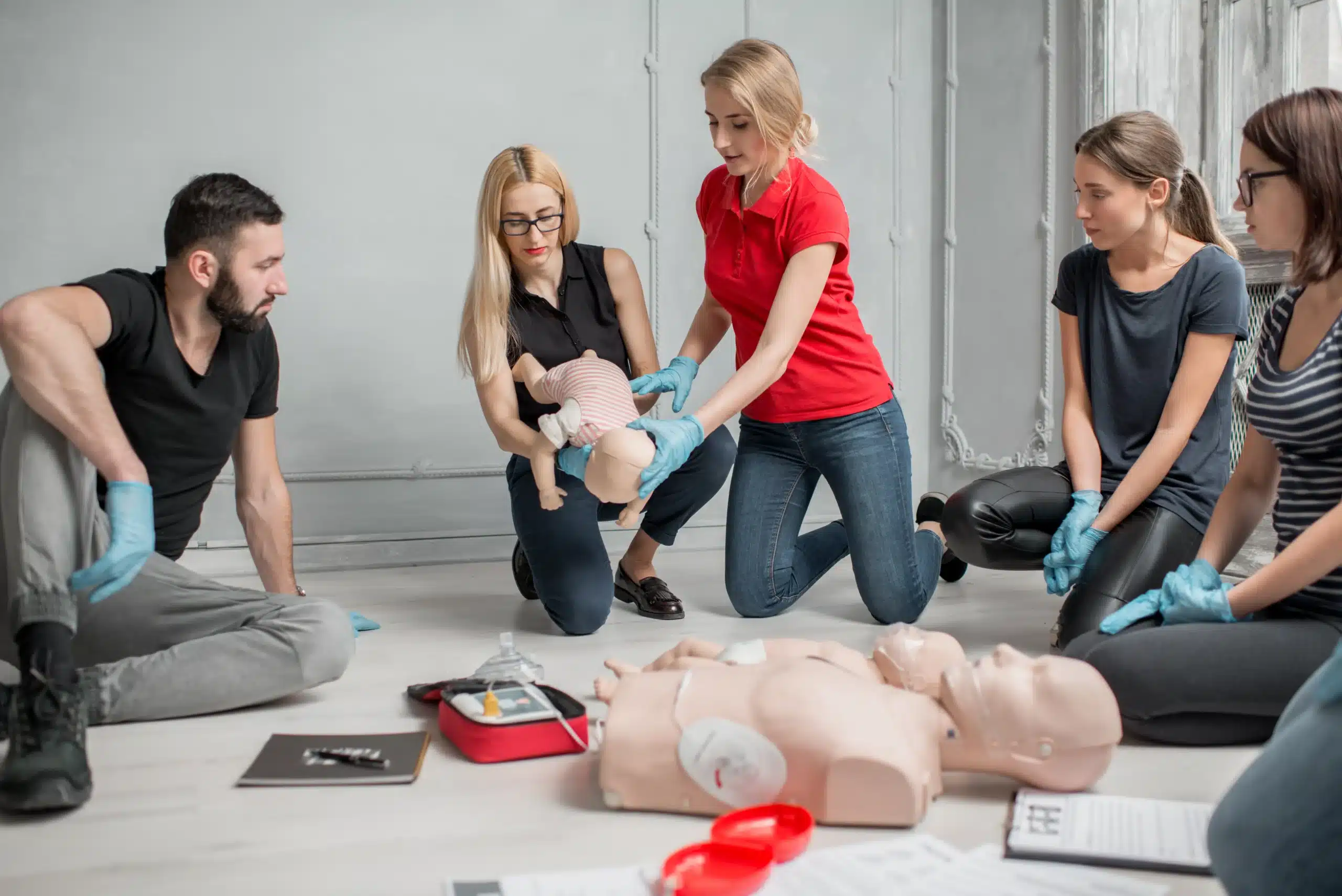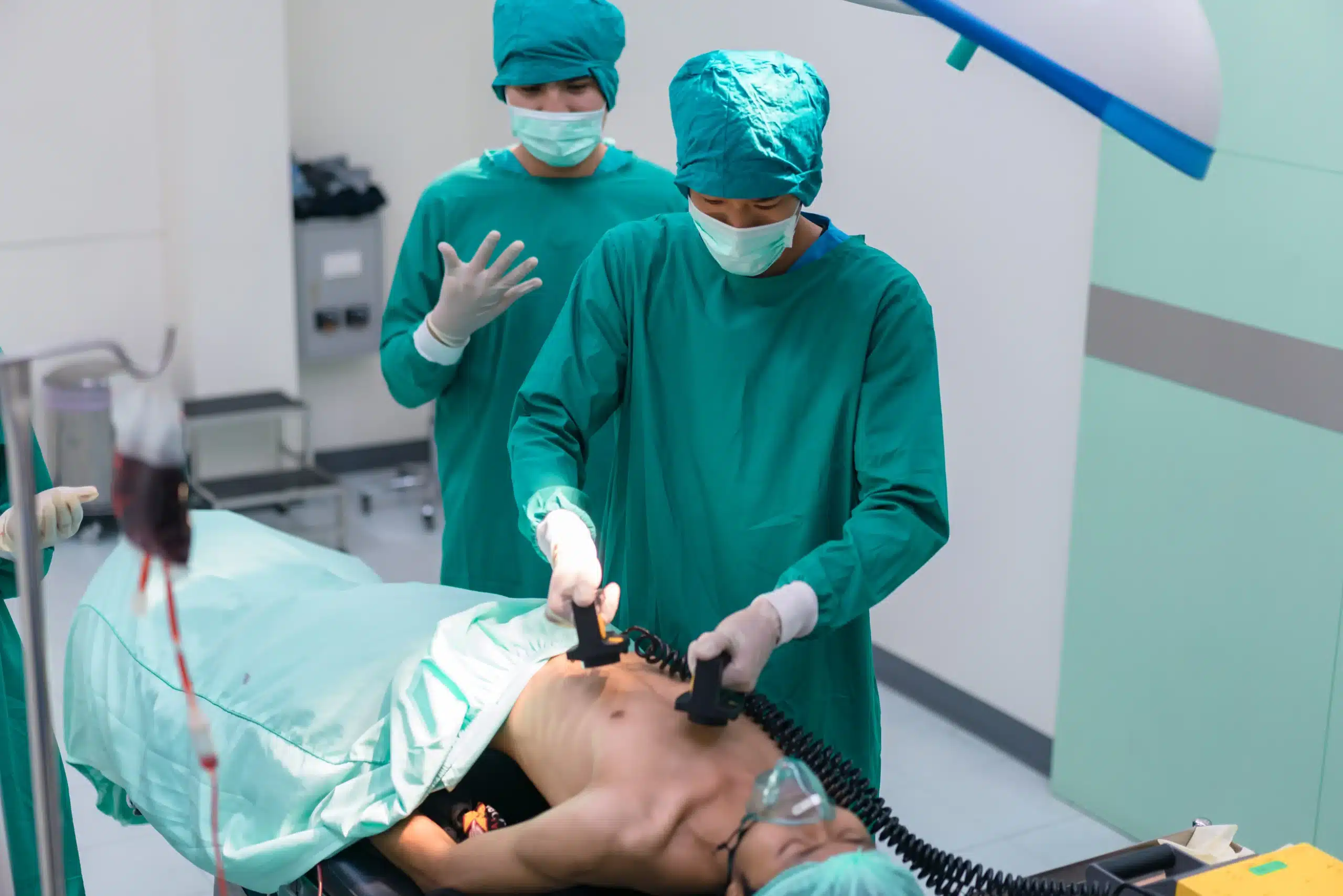Life is unpredictable, and medical emergencies can happen anytime, anywhere. Being equipped with current CPR skills can empower you to act quickly and confidently in such situations. This guide focuses on CPR renewal in Milpitas, providing a comprehensive overview of the process, available courses, and top training providers in the area. We’ll delve into the importance of staying up-to-date with the latest CPR techniques, discuss the different learning formats available, and offer practical tips for maintaining your skills long after your renewal course. Whether you’re a seasoned healthcare professional or simply looking to refresh your CPR knowledge, this guide will provide you with the resources and information you need to stay prepared.
Key Takeaways
- Stay current with life-saving skills: Regularly refresh your CPR knowledge and techniques to confidently respond to emergencies. Choose a renewal course format—in-person, blended, or online—that suits your learning style and schedule.
- Find the right CPR renewal course in Milpitas: Local providers offer various options, from basic CPR to advanced certifications like BLS, ACLS, and PALS. Consider factors like cost, schedule, and instructor experience when selecting a course.
- Maintain your skills after renewal: Regular practice is essential. Utilize resources like online guides, practice partners, and refresher workshops to keep your skills sharp and your knowledge up-to-date.
What is CPR Renewal and Why is it Important?
CPR renewal keeps your certification current, ensuring you have the latest life-saving skills. CPR guidelines and techniques are always evolving, so staying up-to-date is essential for providing effective care during emergencies. Think of it like updating your phone’s software—new versions often have critical improvements. Your CPR renewal training is the same way, providing you with the most current, evidence-based practices. It’s crucial for maximizing positive outcomes in emergencies.
Most CPR certifications are valid for two years. It’s a good idea to renew your certification within 30 days of the expiration date to avoid retaking the entire course. Studies show CPR skills can fade quickly, even within a year. Regular renewal refreshes these vital skills, keeping you prepared and confident to respond effectively. This consistent practice can truly make a difference in a real-life emergency. Beyond simply meeting certification requirements, renewing your CPR skills demonstrates a commitment to providing the best possible care.
CPR Renewal Courses in Milpitas
Keeping your CPR skills sharp is crucial, especially for healthcare providers and those in roles requiring these life-saving techniques. Milpitas offers various renewal courses to help you stay prepared. Let’s explore the key certifications you can renew locally.
BLS Renewal
Basic Life Support (BLS) is the foundation of CPR. A BLS renewal course covers core techniques for single-rescuer and team-based CPR for adults, children, and infants. You’ll also review using an AED and relieving choking. In Milpitas, providers like Safety Training Seminars offer BLS renewals that follow American Heart Association guidelines, often with flexible scheduling options.
ACLS Renewal
Advanced Cardiovascular Life Support (ACLS) renewal is essential for healthcare professionals managing cardiopulmonary arrest and other cardiovascular emergencies. ACLS renewal training reinforces essential concepts like airway management, rhythm recognition, and effective team dynamics. You’ll practice complex scenarios and refine your decision-making skills for critical situations. Milpitas providers offer ACLS renewal courses that meet American Heart Association standards.
PALS Renewal
Pediatric Advanced Life Support (PALS) focuses on the specialized needs of infants and children facing life-threatening emergencies. A PALS renewal course covers essential steps for assessing and managing respiratory distress, shock, and cardiac arrest in young patients. Like BLS and ACLS, PALS renewal courses in Milpitas adhere to American Heart Association guidelines, ensuring you have the most current knowledge. The RQI program, offered through providers like Safety Training Seminars, is a popular option for PALS recertification.
Top CPR Renewal Providers in Milpitas
Finding the right CPR renewal provider is essential for maintaining your skills and confidence in emergencies. Here are a few reputable options in Milpitas:
Milpitas CPR Classes
Milpitas CPR Classes offers a range of American Heart Association (AHA) courses, ensuring you find the right fit for your renewal. Their comprehensive training prepares you for real-life emergencies, focusing on practical skills and knowledge application. This approach builds confidence, allowing you to act quickly and effectively under pressure.
Safety Training Seminars
Safety Training Seminars, a woman-owned AHA Training Center, provides various AHA certifications, including BLS, ACLS, PALS, CPR, and First Aid. Their convenient seven-day-a-week schedule in Milpitas makes it easy to find a class that fits your schedule.
CPR Training Center
The CPR Training Center in Milpitas offers a variety of emergency and health training courses. They categorize their programs into Medical/Dental, Non-Medical, and Blended Learning (which includes online components), offering flexible options for diverse learners. This allows you to choose the format that best suits your needs and preferences.
BLS Certification Classes
If you need to renew your BLS certification, these AHA-certified courses in Milpitas provide a comprehensive curriculum covering essential CPR skills and knowledge. Successful completion earns you an AHA certification, valid for two years.
Costs and Value of CPR Renewal in Milpitas
Knowing the cost of CPR renewal and the value it provides helps you make informed decisions about your training. This section breaks down course pricing, potential discounts, and the overall investment you’re making in life-saving skills.
Course Pricing
CPR renewal costs in Milpitas are competitive and vary based on the course type and format. Basic Life Support (BLS) renewal generally costs around $70 for in-person classes and can be slightly less expensive, around $63, for blended learning (online coursework combined with in-person skills practice). You can find more information on BLS pricing at CPR Training Center’s Milpitas location page. Advanced Cardiovascular Life Support (ACLS) and Pediatric Advanced Life Support (PALS) renewals are typically offered through blended learning for around $150. In-person ACLS renewal can range from $152 to $190, with initial ACLS certification costing around $250.
Discounts and Packages
Many training providers, like Safety Training Seminars, offer discounts. These might be for group registrations, returning students, or bundled courses. Check with your chosen provider to see what discounts are available. Bundling CPR renewal with First Aid or other related certifications can often save you money and streamline your training process.
Invest in Life-Saving Skills
While cost is a factor, remember the invaluable nature of CPR skills. Think of CPR renewal not as an expense, but as an investment in your ability to respond confidently during medical emergencies. Both the American Heart Association and the Red Cross emphasize that CPR skills can diminish over time. Regular renewal ensures you stay up-to-date on the latest techniques and best practices, giving you the confidence to act effectively in critical situations. Your renewed certification demonstrates your commitment to providing high-quality care and potentially saving lives.
CPR Renewal Training Formats
Renewing your CPR certification means choosing a training format that fits your learning style and schedule. Let’s explore the most common options: in-person, online, and blended learning.
In-Person Training
In-person CPR renewal courses offer hands-on learning, guided by certified instructors. This format provides structure for practicing essential skills and asking questions. Safety Training Seminars offers various refresher courses in Milpitas, including CPR, BLS, ACLS, and PALS. These courses emphasize high-quality training, ensuring participants feel confident responding to emergencies. The in-person setting allows for immediate feedback and personalized instruction, invaluable for mastering proper CPR techniques.
Online Renewal
Online CPR renewal offers convenience for busy schedules or limited access to in-person classes. You work through the material at your own pace, often from home. However, online renewal presents some challenges. Some students struggle with the technical aspects of online exams, as highlighted in this article on preparing for online renewal. Choose a reputable online provider that offers comprehensive materials and reliable support.
Blended Learning
Blended learning combines online learning’s flexibility with the practical application of in-person training. You typically complete the theory online, then attend a hands-on skills session with an instructor. The Red Cross offers blended learning CPR renewal, allowing you to learn the material at your own speed before demonstrating your skills. This approach balances independent study and guided practice, making it a popular choice.
CPR Certification Validity and Renewal Timeline
Knowing when your CPR certification expires and how to renew is essential for staying prepared for emergencies. This section covers everything you need to know about CPR certification validity and the renewal process.
How Long is CPR Certification Valid?
CPR certifications, like those offered through the American Heart Association, are typically valid for two years. This timeframe reflects the understanding that skills and knowledge can fade over time. Regular renewal ensures you’re always ready to provide effective assistance when needed. For healthcare professionals needing to maintain their skills, programs like RQI offer flexible options for regular practice and skill maintenance.
When to Renew Your Certification
Don’t wait until the last minute to renew your certification! It’s generally recommended to start the process about a month before your current certification expires. This provides time to find a course that fits your schedule and avoid a lapse in your certification. If your certification expires, you’ll likely have to retake the entire course, rather than a shorter refresher.
Consequences of an Expired Certification
Letting your CPR certification lapse has significant consequences. Your skills may decline, making you less effective during a real emergency. Many workplaces, especially those in healthcare and childcare, require current CPR certification. An expired certification could impact your current job or future opportunities. Even if not required for your job, maintaining a current CPR certification demonstrates your commitment to safety and preparedness—valuable qualities in any situation. Regularly refreshing your CPR skills ensures you can confidently respond to emergencies and provide assistance when it matters most.
Choose the Right CPR Renewal Course in Milpitas
Choosing the right CPR renewal course is crucial for maintaining your skills and confidence in emergency situations. This section will guide you through finding the perfect renewal course in Milpitas.
Assess Your Needs
Before searching for a CPR renewal course, consider your specific needs. Renewing your CPR certification ensures you’re up-to-date on the latest life-saving techniques. Ask yourself: What is your current certification level? Are you a healthcare provider needing to renew your BLS, ACLS, or PALS certification? Or are you looking to refresh your CPR and First Aid skills? Understanding your needs will help you narrow your options and choose the most appropriate course. For example, healthcare providers in Milpitas often renew their certifications through the American Heart Association because of its recognized standards.
Compare Courses and Providers
Once you understand your needs, compare the courses and providers in Milpitas. Look for providers like Safety Training Seminars offering a range of American Heart Association courses, including BLS, ACLS, PALS, and First Aid. Consider factors like course schedules, class size, instructor experience, and cost. Convenience is also key. Providers offering courses seven days a week in Milpitas, as highlighted in this guide, can make fitting renewal training into your schedule easier.
Enrollment and Prerequisites
After selecting a course and provider, familiarize yourself with the enrollment process and prerequisites. Most CPR renewal courses require a current, unexpired certification card. You’ll likely provide proof of your previous training during registration. Check with your chosen provider for specific requirements. Generally, for most CPR classes, including BLS in Milpitas, you won’t need to bring much with you. Upon successful completion, you’ll receive your updated CPR certification card, typically valid for two years. Keep your card in a safe place and mark your calendar for your next renewal.
Prepare for Your CPR Renewal Course
Getting ready for your CPR renewal course? Here’s what you can expect and how to make the most of it.
What to Expect During Renewal
Your CPR renewal course will cover the latest guidelines and techniques from the American Heart Association. This ensures you’re up-to-date on the most effective methods for providing aid in emergency situations. Expect a combination of interactive discussions, demonstrations, and hands-on practice. You’ll review core concepts like chest compressions, rescue breaths, and using an AED. Renewing your CPR certification means you’re prepared to respond confidently and effectively in any situation. It’s about maintaining those crucial skills and staying ready to make a difference. CPR renewal keeps your skills sharp and your knowledge current.
Tips for Successful Renewal
A little preparation goes a long way. Before your renewal course, take some time to review the materials from your initial CPR training. This will refresh your memory and help you get the most out of the renewal session. Consider registering for a blended learning course, which combines online study with in-person skills practice. This flexible format allows you to learn at your own pace and then demonstrate your skills in a hands-on setting. Blended learning offers a convenient way to fit CPR training into your schedule. Remember, upon successful completion of the course and the exam, you’ll receive an updated CPR certification card, typically valid for two years.
Overcome Common Challenges
Technical difficulties can sometimes arise with online learning components. Make sure you have a reliable internet connection and a device that meets the course requirements. If you encounter any issues, don’t hesitate to reach out to the course provider for technical support. It’s also easy to let CPR skills lapse if you aren’t regularly using them. Even if your job doesn’t require a current certification, staying up-to-date can be invaluable in your personal life. Regularly reviewing the material and practicing the techniques will help you maintain those life-saving skills. Consider finding a practice partner or taking refresher courses to keep your skills sharp. Staying prepared means you’re ready to help when it matters most.
Maintain Your CPR Skills After Renewal
Renewing your CPR certification is a crucial first step, but staying sharp and confident in your abilities requires ongoing effort. Think of it like any other skill—regular practice keeps you prepared for a real emergency.
Practice Regularly
CPR skills can fade over time, even after you’ve renewed your certification. Regular practice is key to maintaining muscle memory and confident decision-making under pressure. Set aside time each month to refresh your skills. Even a quick review of chest compression techniques and rescue breathing can make a significant difference. Consider practicing with a friend or family member to simulate a real-life scenario. You can also find helpful videos and guides on the American Heart Association website to guide your practice.
Resources for Skill Development
Beyond regular practice, several resources can enhance your CPR knowledge and technique. The American Heart Association website offers valuable resources, including videos, printable guides, and FAQs. You can also explore online refresher courses or attend short workshops to stay updated on the latest CPR guidelines and best practices. Staying informed ensures you’re providing the most effective care possible in an emergency. Check with your local fire department or community centers for available training opportunities in your area, including those offered by Milpitas CPR Classes. They offer a range of courses, from basic CPR to advanced certifications like ACLS.
The Impact of Current CPR Certification
Personal and Professional Benefits
Staying current with your CPR certification offers significant personal and professional advantages. It empowers you to respond effectively in critical situations, giving you confidence in your abilities. Knowing you possess the most up-to-date, evidence-based techniques, like those taught in our BLS CPR course, can dramatically improve outcomes. This updated knowledge strengthens your life-saving skills, increasing the chances of a positive outcome for someone in need. In many professions, especially healthcare, maintaining a current CPR certification is often a job requirement. It demonstrates your commitment to patient safety and ensures you meet essential workplace standards. Even outside of healthcare, a valid CPR certification enhances your professional profile in fields like education, childcare, or coaching. It showcases your preparedness and dedication to safety, potentially opening doors to new opportunities.
Contribute to Community Safety
Renewing your CPR certification isn’t just about personal and professional growth; it’s a vital contribution to community safety. Like any skill, CPR techniques can fade over time without regular practice. Regular CPR renewal is essential for maintaining those life-saving abilities, ensuring you’re ready to respond effectively in an emergency. By staying current with the latest techniques and guidelines, you become a valuable resource within your community, equipped to provide immediate assistance when every second counts. Your commitment creates a safer environment for everyone around you—family, friends, colleagues, and neighbors. You become a vital link in the chain of survival, ready to make a real difference in a critical situation.
Related Articles
- Why CPR Is Vital in Healthcare & How to Get Certified
- BLS Renewal in San Jose: Your Complete Guide – Milpitas CPR Classes
- AHA ACLS Classes in Milpitas, CA – Milpitas CPR Classes
- AHA PALS Classes in Milpitas, CA – Milpitas CPR Classes
- CPR Certification in San Jose: Your Complete Guide – Milpitas CPR Classes
Frequently Asked Questions
How often do I need to renew my CPR certification? CPR certifications are typically valid for two years. It’s a good idea to renew about a month before your certification expires to avoid any gaps in your qualification.
What are the different ways I can renew my CPR certification? You have several options for renewing your CPR certification: in-person classes, online renewal, and blended learning (a mix of online and in-person). Each format has its own advantages, so consider what works best for your learning style and schedule.
What’s the difference between BLS, ACLS, and PALS renewal? BLS (Basic Life Support) is the foundation for CPR and covers essential life-saving techniques for adults, children, and infants. ACLS (Advanced Cardiovascular Life Support) is geared towards healthcare professionals and focuses on managing cardiovascular emergencies. PALS (Pediatric Advanced Life Support) is specifically designed for healthcare providers who treat infants and children in emergencies. Each renewal course builds upon the previous level, adding more specialized knowledge and skills.
Where can I find CPR renewal courses in Milpitas? Several organizations in Milpitas offer CPR renewal courses, including Milpitas CPR Classes, Safety Training Seminars, and the CPR Training Center. Check their websites or give them a call to find a course that fits your needs and schedule.
What if my CPR certification has already expired? If your certification has expired, you’ll likely need to retake the full certification course rather than just a renewal course. Contact a training provider to confirm their specific requirements. It’s always best to renew before your certification expires to avoid having to repeat the entire course.
